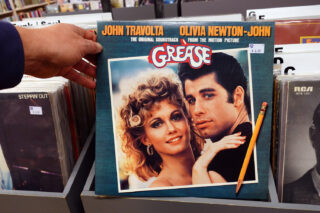
More Cancer Awareness Articles
Music Legend Olivia Newton-John Dies after long journey with breast cancer

The 70’s and 80’s produced many wonderful iconic musicians and singers and Olivia Newton-John is certainly among them. The 4-time Grammy winner was born in England and grew up in Australia before becoming the big star we all remember.
Probably best known for her role with John Travolta in Grease, her many hits are being played today as they were then. That soundtrack remains one of the best-selling of all time. Streaming of her hits has jumped some 600% since her passing. She had many number one singles in the 70’s and several number one albums.
In 1992 she was preparing her latest album and tour when she was diagnosed with breast cancer forcing her to cancel the tour and focus on her treatment. She recovered and became an advocate for breast cancer research. She had always been an advocate and activist for many different causes and her cause became breast cancer. She battled breast cancer three times before succumbing at the age of 73.
She will be missed, but her legacy lives on in her music and film work. Her work as a breast cancer advocate raised millions of dollars for breast cancer research and to help breast cancer survivors. In 2008, she raised funds to help build the Olivia Newton-John Cancer and Wellness Centre in Melbourne, Australia.
What Are the Risk Factors for Breast Cancer?
Studies have shown that your risk for breast cancer is due to a combination of factors. The main factors that influence your risk include being a woman and getting older. Most breast cancers are found in women who are 50 years old or older.
Some women will get breast cancer even without any other risk factors that they know of. Having a risk factor does not mean you will get the disease, and not all risk factors have the same effect. Most women have some risk factors, but most women do not get breast cancer. If you have breast cancer risk factors, talk with your doctor about ways you can lower your risk and about screening for breast cancer.
Risk Factors You Cannot Change
- Getting older. The risk for breast cancer increases with age. Most breast cancers are diagnosed after age 50.
- Genetic mutations. Women who have inherited changes (mutations) to certain genes, such as BRCA1 and BRCA2, are at higher risk of breast and ovarian cancer.
- Reproductive history. Starting menstrual periods before age 12 and starting menopause after age 55 expose women to hormones longer, raising their risk of getting breast cancer.
- Having dense breasts. Dense breasts have more connective tissue than fatty tissue, which can sometimes make it hard to see tumors on a mammogram. Women with dense breasts are more likely to get breast cancer.
- Personal history of breast cancer or certain non-cancerous breast diseases. Women who have had breast cancer are more likely to get breast cancer a second time. Some non-cancerous breast diseases such as atypical hyperplasia or lobular carcinoma in situ are associated with a higher risk of getting breast cancer.
- Family history of breast or ovarian cancer. A woman’s risk for breast cancer is higher if she has a mother, sister, or daughter (first-degree relative) or multiple family members on either her mother’s or father’s side of the family who have had breast or ovarian cancer. Having a first-degree male relative with breast cancer also raises a woman’s risk.
- Previous treatment using radiation therapy. Women who had radiation therapy to the chest or breasts (for instance, treatment of Hodgkin’s lymphoma) before age 30 have a higher risk of getting breast cancer later in life.
- Exposure to the drug diethylstilbestrol (DES).external icon DES was given to some pregnant women in the United States between 1940 and 1971 to prevent miscarriage. Women who took DES, or whose mothers took DES while pregnant with them, have a higher risk of getting breast cancer.
Risk Factors You Can Change
Being physically active can help lower your risk of getting breast cancer.
- Not being physically active. Women who are not physically active have a higher risk of getting breast cancer.
- Being overweight or having obesity after menopause. Older women who are overweight or have obesity have a higher risk of getting breast cancer than those at a normal weight.
- Taking hormones. Some forms of hormone replacement therapy (those that include both estrogen and progesterone) taken during menopause can raise risk for breast cancer when taken for more than five years. Certain oral contraceptives (birth control pills) also have been found to raise breast cancer risk.
- Reproductive history. Having the first pregnancy after age 30, not breastfeeding, and never having a full-term pregnancy can raise breast cancer risk.
- Drinking alcohol. Studies show that a woman’s risk for breast cancer increases with the more alcohol she drinks.
Research suggests that other factors such as smoking, being exposed to chemicals that can cause cancer, and changes in other hormones due to night shift working also may increase breast cancer risk.
Who Is at High Risk for Breast Cancer?
If you have a strong family history of breast cancer or inherited changes in your BRCA1 and BRCA2 genes, you may have a high risk of getting breast cancer. You may also have a high risk for ovarian cancer.
Talk to your doctor about ways to reduce your risk, such as medicines that block or decrease estrogen in your body, or surgery.external icon
Other Articles You May Find of Interest...
- Fighting Cancer for All: Why Diversity in Clinical Trials Matters
- Bill Johnson’s Lung Cancer Crusade: Fighting for a Radon-Free Life
- The Revolution of Robotic Surgery In Colorectal Procedures: Smaller Incisions, Faster Recovery
- Ovarian Cancer Prevention
- Wellness Technology From Nature, Light And Frequency
- Cancer: Improving the Odds
- Acupuncture For Side Effects Of Cancer

















